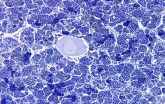The State of Vaccine Confidence Report from researchers at the London School of Hygiene & Tropical Medicine (published 26 March) analyses some of the vaccine confidence issues that have occurred over the past decade with a range of vaccines, reports on strategies that have had positive impacts on engaging populations and building trust and confidence, and reflects on what still need to be learned.
The report also includes new research examining vaccine hesitancy rates in five countries (UK, India, Pakistan, Nigeria and Georgia) using a new Vaccine Confidence Index, which is the start of a global initiative to measure confidence in countries around the world.
These first findings from the Vaccine Confidence Index, also published in PLOS Current Outbreaks, reveal that while vaccine hesitancy and refusals are relatively rare, rates vary considerably between countries. The UK had the highest rate of parents hesitating when considering vaccinating their child (24.5%). Georgia had the highest proportion of hesitant parents going on to refuse vaccination at country level (60%).
At a state level in Nigeria the rate of refusal was highest in Kano state (74.2% of hesitant parents), which the researchers note reflects the a lasting effect of the 2003=04 polio vaccination boycott as Kano state was where the boycott persisted for eleven months. [See notes to editors for key findings from each country]
Report lead author, Dr Heidi Larson, from the London School of Hygiene & Tropical Medicine, said: "Vaccine hesitancy is a highly varied, global challenge. Even small groups of hesitant or refusing individuals have the potential to severely undermine an immunisation programme. Public confidence is vital and our Vaccine Confidence Index will provide insights for policy makers and health professionals, to help them understand public sentiment about vaccinations, identify issues early, and act appropriately to ensure immunisation programmes are not disrupted."
Developed in collaboration between the London School of Hygiene & Tropical Medicine and the Global Public Health Polling Network (Gallup International), the Vaccine Confidence Index - a set of survey questions for parents of children under five years of age - will help detect waning confidence and address issues.
In the first set of surveys conducted in the UK, India, Pakistan, Nigeria and Georgia, 5,873 parents of children under five (under 15 in Georgia) were asked whether they had ever hesitated to vaccinate their children, and if so, whether they went on to accept or ultimately refuse vaccination. Reported reasons for hesitancy in all countries were classified as being due to either confidence (do not trust vaccine or provider), convenience (access) or complacency (do not perceive a need or value of vaccine). Issues of confidence were found to be the main reason for hesitancy in all countries surveyed.
The surveys will be expanded globally in the future to include more countries around the world, with results updated online and repeated over time. The report authors say it is imperative to global public health to understand the dynamics of vaccine confidence among the public, health providers and politicians or policy makers.
Developments in technology over recent years have meant dramatic changes in the ways and the speed in which information is shared. The internet has enabled likeminded people around the world to share their beliefs and concerns about vaccination, and means that both accurate and inaccurate information is readily available to anyone online.
Growing concern about vaccine hesitancy is reflected in the creation of new taskforces and research groups to examine the issue within organisations such as the World Health Organization Strategic Advisory Group of Experts on Immunization and the National Vaccines Advisory Committee in the US.
The report examines what strategies were successfully employed to overcome the challenges faced by immunisation programmes in different settings. The authors say that in many instances there is no single reason driving resistance to vaccination, understanding the influences behind confidence gaps is key to addressing them.
Dr Heidi Larson added: "Our new global mapping initiative places a finger on the pulse of public confidence in vaccines worldwide. Confidence in vaccines and immunisation programmes is a dynamic and changing phenomenon which influences behaviour and has consequences for the whole population. Reflecting on past experiences we can see just how much public trust matters. Without it, even the best science and public health strategies become powerless."
The research was funded by the Bill & Melinda Gates Foundation.
For further information, a copy of the report or to request interviews, please contact the London School of Hygiene & Tropical Medicine press office on +44(0)2079272802 or press@lshtm.ac.uk.
Notes to Editors: The State of Vaccine Confidence Report will be published at: http://www.vaccineconfidence.org Heidi J Larson, William S Schulz, Joseph D Tucker, David M D Smith. Measuring Vaccine Confidence: Introducing a Global Vaccine Confidence Index. PLOS Current Outbreaks. DOI: 10.1371/currents.outbreaks.ce0f6177bc97332602a8e3fe7d7f7cc4: http://currents.plos.org/outbreaks/article/measuring-vaccine=confidence-introducing-a-global-vaccine-confidence-index/ The Vaccine Confidence project was set up in 2009 to develop a systematic approach to understanding, monitoring, and responding to issues of public trust and confidence in immunisation and immunisation programmes. Dr Heidi Larson will be speaking at the 2015 Consortium of Universities for Global Health (CUGH) conference in Boston on 26 March: http://www.cugh.org/events/conference2015
Key findings from the first country vaccine confidence studies:
UK The UK findings are from a survey of 2,055 people 196 were parents who had a child aged under 5, and of those, 48 (24.5%) hesitated when considering vaccinating their child 13 parents went on to refuse vaccination (27.1% of those who hesitated) The most common reasons given for hesitancy in the UK were that parents did not think the vaccine was safe, did not think it was needed, did not think it was effective, they had a bad experience or reaction with previous vaccination, or that someone else had told them that the vaccine was not safe or someone else told them they/their child had a bad reaction.
India Findings from 1,259 people in India 288 were parents with a child under 5, and of those 36 (12.5%) hesitated when considering vaccinating their child 6 went on to refuse vaccination (16.7% of those who hesitated) Most of those who hesitated did not give a specific reason for doing so or said they couldn't remember why. Other reasons included having a bad experience or reaction with a previous vaccination
Nigeria In Nigeria, both households and health providers were surveyed 12,555 interviewees from households (these results were also broken down into five states) 3,687 of those were parents of a child under 5 and of those 308 (8.4%) hesitated when considering vaccinating their child 70 went on to refuse vaccination (22.7% of those who hesitated) The most common reasons given for hesitancy were that parents did not think the vaccine was safe, did not think it was effective, had had a bad experience with a previous vaccinator or health clinic, as well as issues with convenience (too far away, not possible to leave work, timing inconvenient) 1,272 interviewees from health providers 519 were parents with a child under 5 and of these 44 (8.5%) hesitated when considering vaccinating their child 5 went on to refuse vaccination (11.4% of those who hesitated)
Georgia Findings from 1,000 people 474 were parents with a child under 15 years and of those 35 (7.4%) hesitated when considering vaccinating their child 21 went on to refuse vaccination (60% of those who hesitated) The most common reasons for hesitancy in Georgia were that parents did not think the vaccine was safe, or had had a bad experience or reaction with previous vaccination
Pakistan Findings from 2,609 people 709 were parents with a child under 5, and of those 99 (13.9%) hesitated when considering vaccinating their child 15 went on to refuse vaccination (15.2% of those who hesitated) Most of those who hesitated did not give a specific reason for doing so or said they couldn't remember why. Other common reasons included that parents did not think that the vaccine were effective, or that the timing was inconvenient.
The researchers note that although the same core questions for participants were repeated across the five countries, the full set of questions posed in the survey was not precisely the same in every country. They also note that there was a mix of online, telephone and house-to-house (Nigeria) surveys used in the different country vaccine confidence studies. This means comparisons that can be made between countries are somewhat limited. However, there was a strong consistency in trends observed across most or all countries.
INFORMATION:
About the London School of Hygiene & Tropical Medicine
The London School of Hygiene & Tropical Medicine is a world-leading centre for research and postgraduate education in public and global health, with 3,900 students and more than 1,000 staff working in over 100 countries. The School is one of the highest-rated research institutions in the UK, and among the world's leading schools in public and global health. Our mission is to improve health and health equity in the UK and worldwide; working in partnership to achieve excellence in public and global health research, education and translation of knowledge into policy and practice. http://www.lshtm.ac.uk
About the Global Public Health Polling Network (Gallup International)
We are a global network dedicated to the study of international public health. It is jointly managed by ORB-International UK and Gallup Pakistan, both members of WIN-Gallup International Association which was founded by Dr George Gallup In 1947 and is headquartered in Zurich, Switzerland. The Network works closely with Members of the Association in nearly 80 countries around the world, as well as other friendly companies to cover the entire globe. The Network leaders leverage on their experience in the economically advanced countries of the world as well as in economically disadvantaged countries concentrated in Asia and Africa. The Network works closely with international schools of public health and other academic institutions, and makes every effort to facilitate the work of senior scholars, doctoral candidates and other interested in the field of international public health as an academic discipline.



